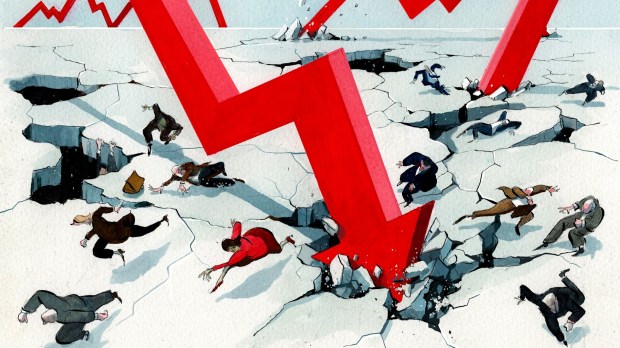As I set to compiling your email responses into our ‘broadband dossier’ to send to BT chairman Jan du Plessis, the government issued its own evaluation of the ‘economic impact and public value’ of the superfast broadband roll-out programme launched in 2010. Compiled by outside experts, this document from the Department for Digital, Culture, Media and Sport (DCMS) estimates that the additional economic activity and ‘wellbeing’ generated by spending public money to subsidise connections for remote and difficult locations: 5.3 million customers will eventually benefit at an estimated unit cost of £211, creating a total bill for the taxpayer of just over £1 billion.
Comparing the two reports, I’d say the richly anecdotal Spectator dossier is a more entertaining read than the heavily statistical government paper. But anecdotal also means partial, and I can’t claim that a cross-section of this column’s readers, most of them enraged by poor service from BT and its Openreach delivery arm, represents a complete picture. Nevertheless I think we can draw some tentative conclusions.
The first is that decent broadband is now seen as a public right, just as access to electricity and piped water became so in the mid 20th century. Whether for VAT returns, Rural Payment Agency claims, road tax renewals or even A-level revision, the state urges and expects us to migrate online. So there’s a random unfairness in the way many households find themselves left behind because they’re too far from the nearest fibre-connected cabinet or because Openreach has otherwise assessed them as not worth the detour. ‘Superfast’ is defined as a download speed of 24 megabits per second, yet many readers still get only 1 or 2Mbps: a rural Warwickshire postcode boasts a ‘quite excellent’ 75Mbps while inner-city Wapping has only ‘a fairly asthmatic 5-6Mbps’ and a Dorset reader takes 25 hours to download a single episode of The Night Manager.
But even if perfect delivery everywhere is impossible, the standard of response to service glitches clearly could be much better, which means Openreach should employ a lot more engineers and BT directors should spend part of each day listening to customers shouting at call-centre operatives in Bangalore. And the charging formulae for all providers should be based on actual rather than promised download speeds, and metered usage: we’ll all feel better if we pay only for what we actually receive.
Real economic difference
As to public subsidy for broadband, the conclusion to be drawn from the DCMS report, though it may not please some readers, is that it should be heavily tilted towards business premises. The report comes up with a benefit-to-cost ratio per pound of subsidy of £1.18 for residential superfast connections but £12.28 for non-residential. The ‘wellbeing’ effects of more movie choices from the sofa and everything else home broadband brings are worth having and we now see them as an entitlement. But the effects on productivity, job creation, small-business viability and export potential are vital for future prosperity — and the competitive disadvantage of having poorer broadband than our trading rivals is plain.
Digital secretary Jeremy Wright should join our campaign to kick BT towards better service for every customer at the end of the line — but if he wants to make a real economic difference, he should turn himself into a catalyst for world-class broadband delivery to every British business. Thanks again to everyone who sent their opinions and experiences.
New era for Greece
‘Greece has successfully completed a three-year eurozone bailout programme worth £55 billion designed to tackle its debt crisis,’ reported the BBC. That’s an interesting use of ‘successfully’, given that Greek public debt still stands at 180 per cent of GDP while almost half the country’s young people are unemployed and the economy is 25 per cent smaller than it was before the troubles. Still, growth has returned to 2 per cent, tourism is on the up and a decade of bitterly resented austerity imposed from Frankfurt and Brussels has passed without the public disorder that was widely predicted. One lesson to be drawn is that all national economic crises can eventually be turned by application of financial discipline. Another is that the brutal will of the EU powers to hold their empire intact should never be underestimated.
C’est mon ami qui paie
The highlight of my month in France was a son et lumière at the hamlet of Gandoulès in Tarn-et-Garonne, which told the story of 20th-century rural life with a huge cast of amateur actors and livestock, plus vintage vehicles and (alluding to nearby atrocities) Nazi uniforms. We think of France as a statist nation but here the state was benignly distant, represented only by the mayor and the postman and without mention of the EU whose advance was the major historical tide of the latter part of the century. Rather, what was celebrated was communitarian self-sufficiency, ruled more by the seasons than by Paris or Brussels. Local farming families packed on the benches — amply cushioned by subsidies, I suspect — and loved every moment. A rose-tinted spectacle, but a beautiful piece of theatre.
As to my annual quest for value-for-money eating, I must mention Le Gindreau at Saint-Médard near Cahors, where we lunched long on a sun-dappled terrace, exploring every delicacy chef Pascal Bardet (formerly of the Louis XV at Monte Carlo) had to offer. ‘Value for money?’ I hear you splutter, if you happen to know the place. ‘You’re talking €100 a head before you’ve sniffed the cheese trolley.’ Well, yes, but while summer’s still aglow and the future’s so uncertain, why not? And you can always resort to the phrase that’s so useful in any language and at every negotiating table: ‘My friend will pay.’
Got something to add? Join the discussion and comment below.
Get 10 issues for just $10
Subscribe to The Spectator Australia today for the next 10 magazine issues, plus full online access, for just $10.
You might disagree with half of it, but you’ll enjoy reading all of it. Try your first month for free, then just $2 a week for the remainder of your first year.















Comments
Don't miss out
Join the conversation with other Spectator Australia readers. Subscribe to leave a comment.
SUBSCRIBEAlready a subscriber? Log in